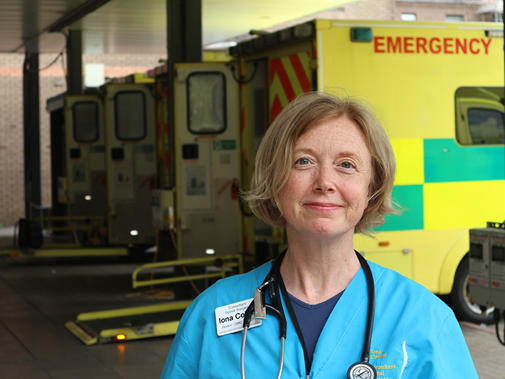How can a modern healthcare system operate in a modern world without catching up with technology? We can now monitor just about anything via an app on our phone but fundamental access to healthcare records is inaccessible and uncoordinated.
As patient waiting lists hit a record of almost 750,000 in July NHS staff, employers and Welsh Government are scrambling to find ways to expedite treatment for patients in Wales and the absence of digitisation is holding us back from the care we deserve.
A recent conversation with a parent illustrates how clunky and counterproductive the system is…
'I’ve been on the phone for over an hour, and I’ve been bounced from pillar to post.'
Says a parent who was trying to find out why his son had been delayed in getting his hearing test.
The hour on the phone, the multiple department involvement between paediatrics, ENT, audiology, and the GP surgery, would have more than paid for a non-NHS hearing test of between £60 and £120, but instead, the patient was still in need of a hearing test and neither he nor his dad were any further forward with understanding whether the GP referral had even been processed in the system.
What sort of NHS do we have in Wales when we don’t even have confidence that our referrals for investigation or treatment have been received?
We should not be drawn into making comparisons between NHS Wales and NHS England, but when people in England wonder why our blood tests aren’t easily accessible on our smart phones, or why we can’t all book appointments online, or why we don’t know whereabouts on a waiting list we are, it’s hard not to ask the question 'Why is NHS Wales so far behind with going digital?'
BMA Cymru Wales has been calling for some time for NHS Employers and Welsh Government to introduce technology that is accessible to primary and secondary care providers and patients to ensure a more seamless patient journey.
We are supporting the roll out of electronic prescribing, while the introduction of shared referral dashboards and patient update systems are desperately needed. This will enable GPs and doctors in hospitals to communicate and manage patient conditions while allowing patients to track the status of referrals, reducing the need for additional admin, follow up calls, and GP appointments solely for waiting time updates
Welsh Government has made progress with its plans for electronic prescribing; however, this work needs to be accelerated.
We are already well behind both England and Scotland where e-prescribing models have been in place since 2014 and 2009 respectively.
The benefits of electronic prescribing are clear, with patients able to access their prescription at a pharmacy of their choice. Technology in retail allows us to get updates on the progress and delivery times of purchases, and healthcare should be no different. In fact, it should be a priority
While we must of course remember that not all patients will have the technology and digital capabilities to themselves access these advances, the benefits will nonetheless be clear.
More patients being able to access updates easily and quickly will ensure more time is available for others, while healthcare staff across the system will be in a better position to support patients.
Iona Collins is BMA Welsh council chair

